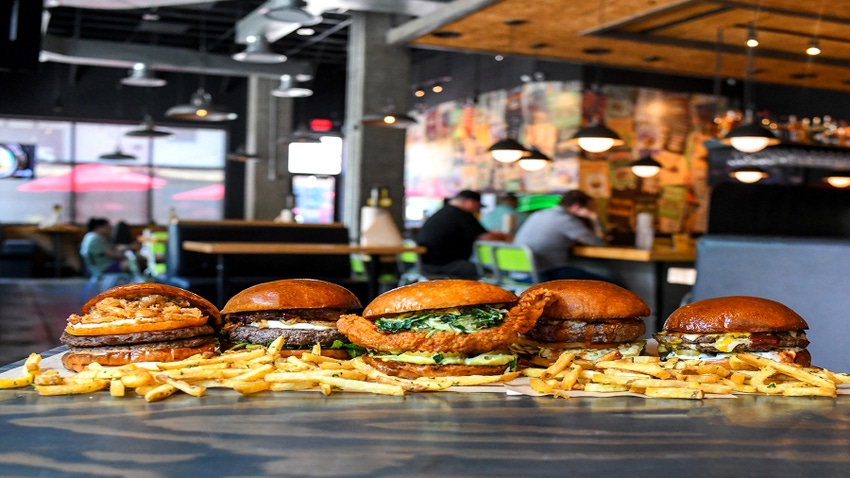
Determined to talk about Hopdoddy Burger Bar’s decision to drop alternative meat products from its menu, Matt Schweitzer tracked down a clear signal on a mountain in Northeast Oregon where he reported that he was “chasing mule deer and black bear with my wife”.
They weren’t shooting them with a camera lens.
Schweitzer was on the phone to talk about Hopdoddy’s move to source its beef from regenerative farm operations in a grass-fed system. His company serves hand crafted burgers in Tennessee, Louisiana, Texas, Georgia and Florida, as well as locations in the West.
The chain also serves chicken and bison. It once included Beyond Meat and the Impossible Burger. No longer.
“A lot of the imitation – fake – meat companies have the right idea, but they went about it the wrong way,” Schweitzer said. “I don’t think they’re bad people or they have ill intent. But when the CEO of Impossible said they wanted to make it so red meat was no longer, we moved away from it.”
Booting alternative meat products from the menu, however, was a long kick. Schweitzer figured the process took about two years and at first involved switching to Beyond Burger. Though Hopdoddy leaders initially simply changed brands because they were more comfortable with the second company’s messaging, they ultimately decided neither was an appropriate fit for their national restaurant chain.
Essentially, Schweitzer said, “they’re not products that are in alignment with our position as a brand and as a company.”
So, what is that position?
“My biggest message is I’m pro red-meat consumption. Red meat is God’s gift to man as a multi-vitamin,” he said.
Middle class pushes back
Hopdoddy’s website dives into a middle-class pushback to alternative meats, electric cars, and – well – nearly anything a working man might call new-fangled.
The site speaks to its visitors after welcoming them to “conservation for the rest of us”:
“You’re eco-tired. We’re eco-tired. We took the ice out of our iced tea. We got used to the soggy replacement for plastic straws. We showered with buckets to water our plants. Let’s get real.
“Not all of us can afford electric cars or smart homes. Or quit our jobs to start a farm. We say, cut the bull crap. Want to stop climate change for good? Just eat.”
Doubling down on their message, visitors at all Hopdoddy locations are encouraged to “Save the Planet…One Bite at a Time.”
The messaging is a solid 180-degree turn from the expected eco-activist content. And yet, some might still call it eco-activist. It essentially takes a fast track from the call to end livestock production through traditional systems to a regenerative ag platform grounded in grass-fed production. It decries both lab-created meat products and traditional livestock production.
Schweitzer adopts a lower key.
“I would prefer that regenerative ranching catches on because we feel it’s a more sustainable way to feed the population of the world,” he said. “Grass-fed beef has been around a long time, but with managed grazing patterns and rotational movement of the ruminants, you can see some magical things happen to the earth.”
Though the website dives into free-ranging elements of regenerative agriculture, Schweitzer offers a simple definition of the practice.
“Our definition of regenerative is increasing organic matter in the soil,” he said.
He gives a nod to family farms.
“If you’re on a 150-year-old cattle ranch in Kansas, I’m probably not talking to you,” he said. “I’m talking to large CAFOs [concentrated animal feeding operations] that could stand to invest some money in a system that could be beneficial to all stakeholders involved.”
The burger chain’s director of revenue believes regenerative production practices are more profitable for ranchers and, apparently, for Hopdoddy.
“Celebrating ruminant animal protein is what we do best,” Schweitzer said.
About the Author(s)
You May Also Like






